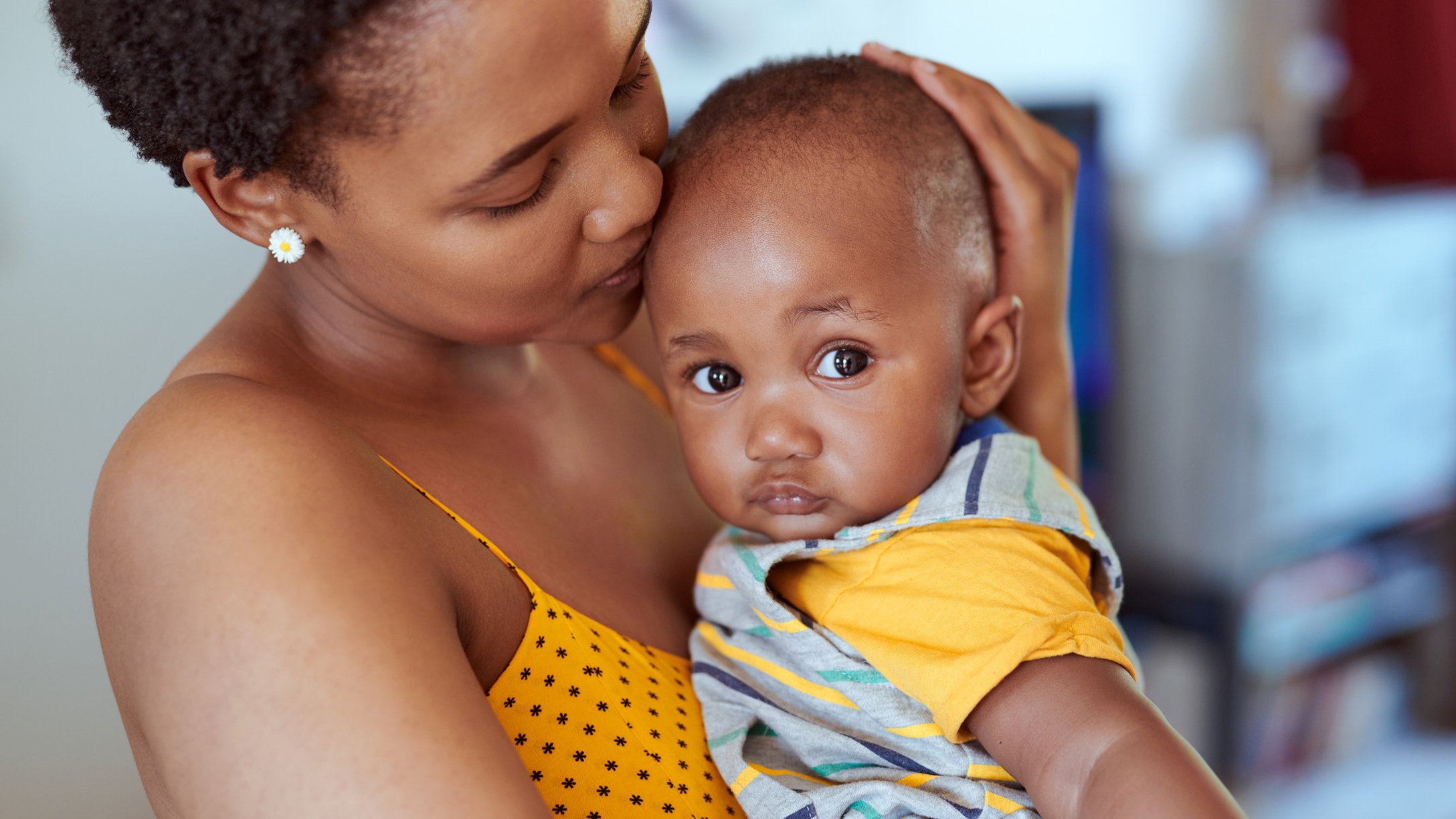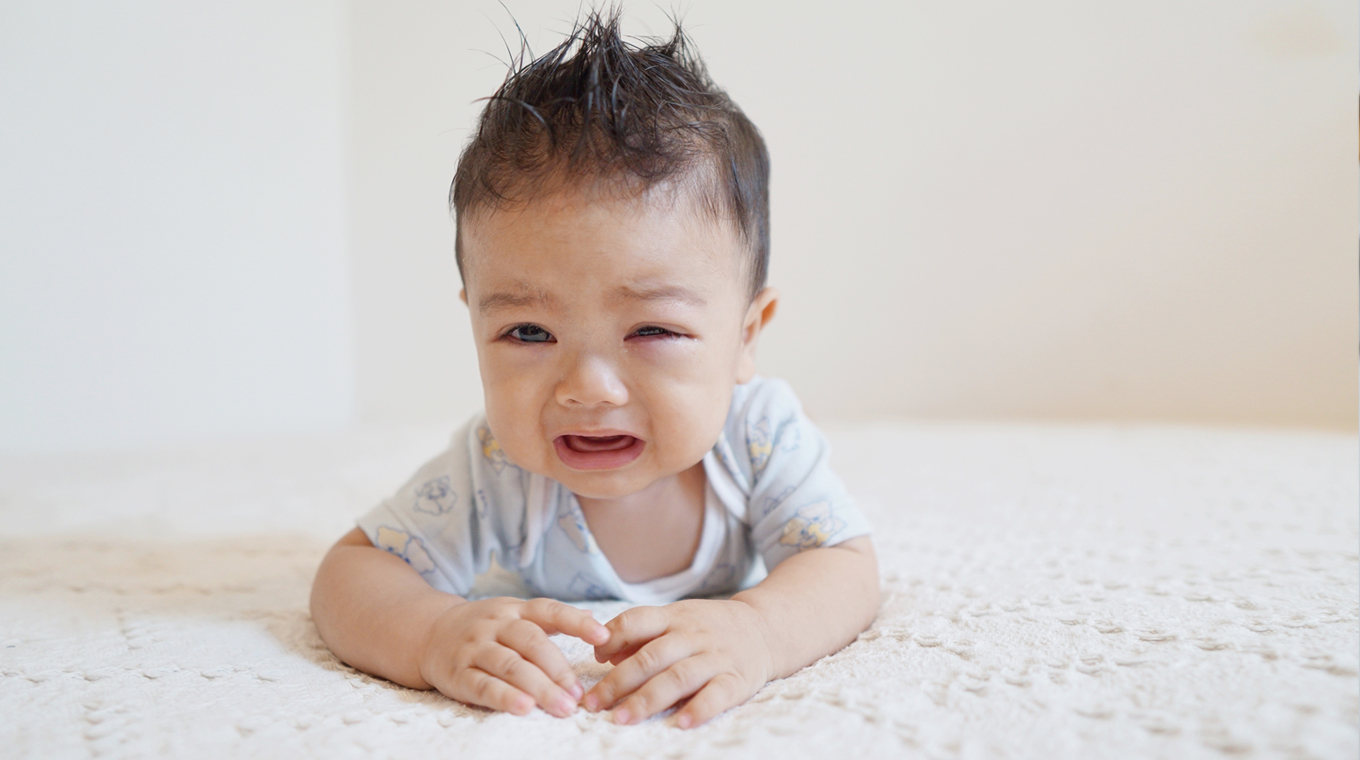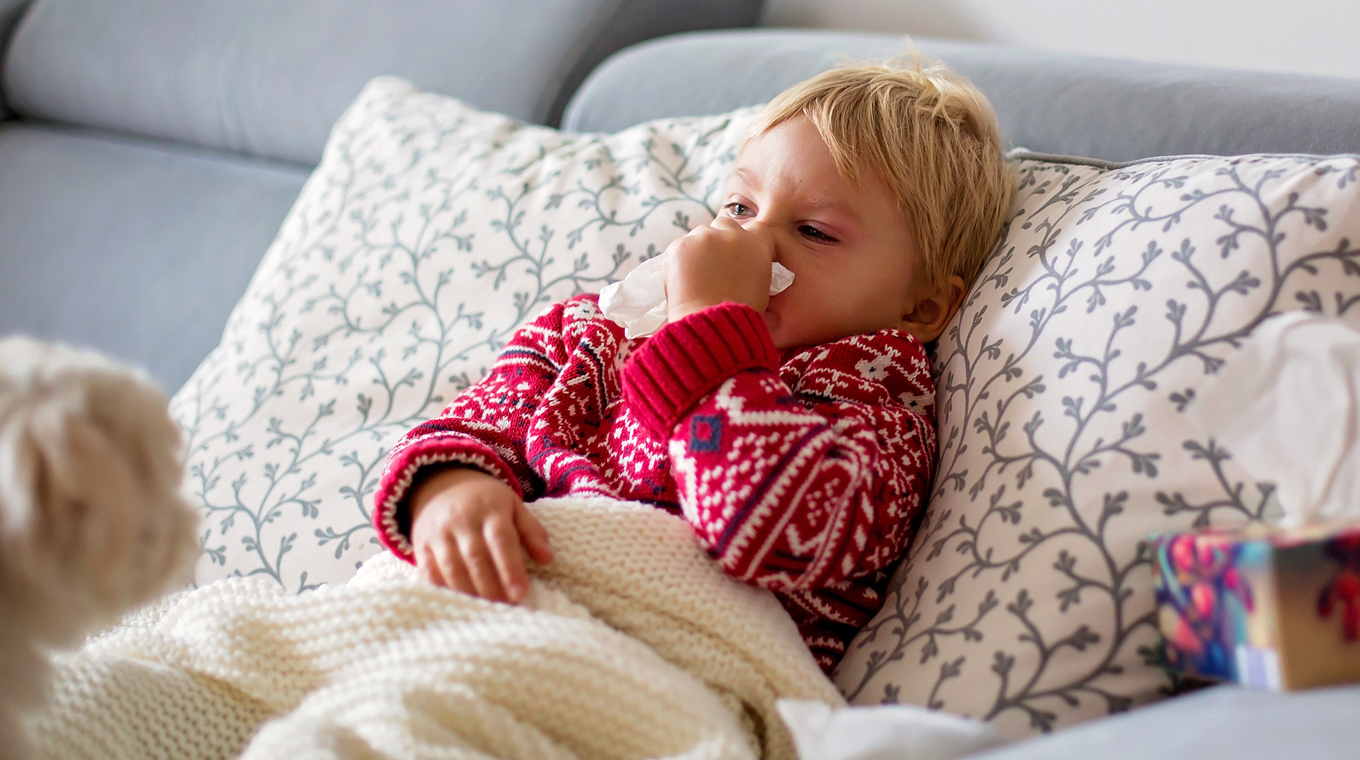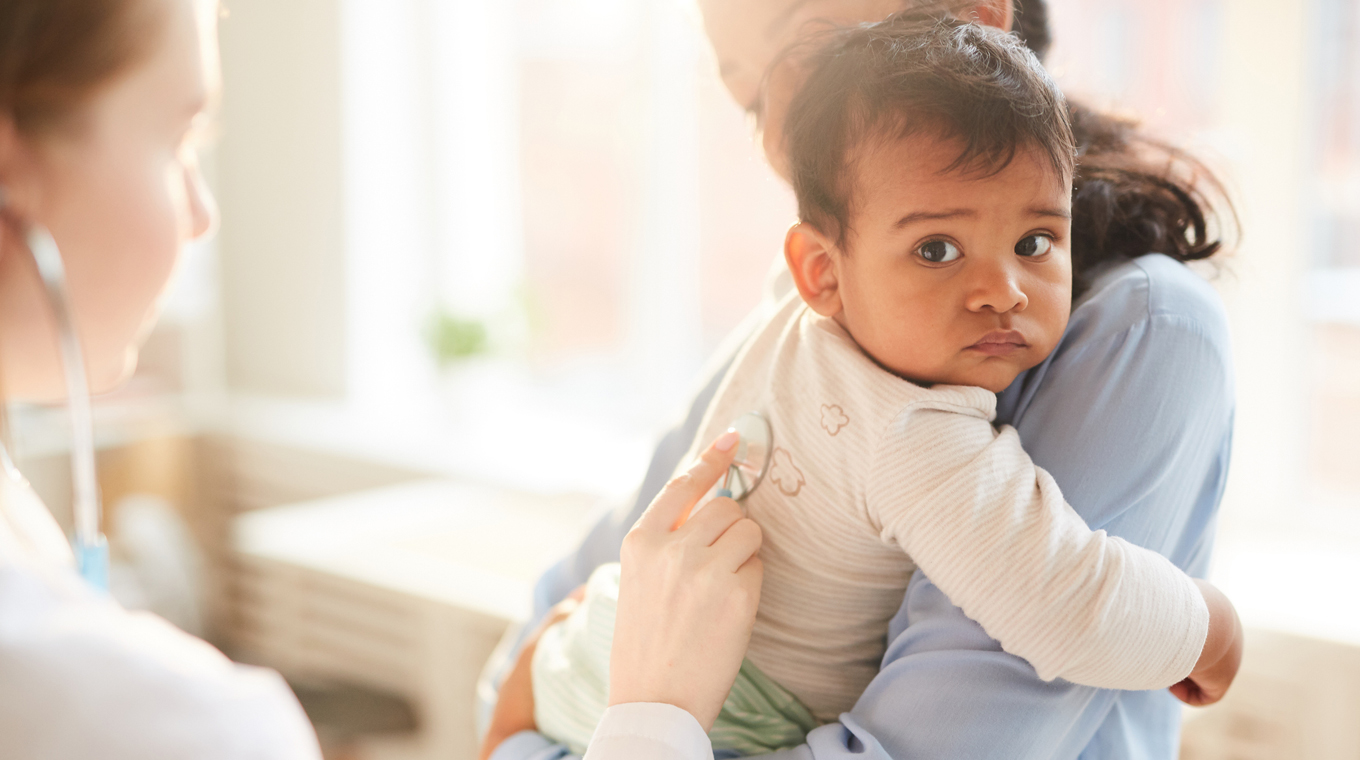
In this article
Respiratory syncytial virus (RSV) is a viral infection that can affect anyone, but babies are particularly prone to the infection because they don’t always have well-developed airways and lungs. Failure to treat RSV can lead to more severe infections such as bronchiolitis or pneumonia and could require hospitalization in extreme cases. With COVID-19 on everyone’s mind, it’s important to understand the differences and know what the symptoms are of an RSV infection.
What does RSV stand for and what are the symptoms?

RSV is an acronym for respiratory syncytial virus, a virus that causes infections of the lungs and respiratory tract. Anyone of any age can contract it, but it is considered most serious in babies whose lungs and defense mechanisms are not yet fully developed.
What are the symptoms of RSV?
It can be hard to identify RSV among other common ailments including COVID-19. Symptoms in babies are often more pronounced and serious. Early symptoms are similar to the common cold and include loss of appetite and a runny nose. As the condition worsens, more symptoms appear with symptoms often peaking around the fifth day.
Some of the common symptoms of RSV in babies include:
- Faster than normal breathing
- Labored breathing
- Cough
- Fever
- Irritability
- Lethargy
- Runny nose
- Sneezing
- Wheezing (wheezing often accompanies a cough)
What causes RSV?

RSV is more prevalent during the winter months when people are more likely to be indoors and interacting. The most common onset months are November to April. This is a respiratory infection caused by a virus and, thus, cannot be treated with antibiotics. Babies born prematurely are at a higher risk since their lungs are not as well developed as those born full term.
Don't be afraid to call your doctor if you suspectt RSV. “There are just so many things to worry about for your little one. My standing rule is if she’s sick, make at least a call to her pediatrician,” mom of three Julia Dwyer told Mom.com.
When to see a pediatrician
If you suspect that your baby has RSV rather than a common cold, you’ll want to contact your pediatrician as soon as possible. “The clinical manifestations of RSV vary with patient's age, health status, and whether the infection is primary or secondary," emergency medicine doctor Dr. Rajnish Jaiswal told Mom.com. "Infants and young children with primary infections usually present with lower respiratory tract infection. RSV can also cause infants to suddenly stop breathing, a phenomenon called apnea.”
It’s imperative to seek medical attention under the following circumstances:
- Baby is dehydrated with no tear production when crying
- Coughing gray, green, or yellow mucus
- Fever higher than 100.4 Farheinheit (babies under 3 months)
- Fever higher than 104.0 Farheinheit (any age)
- Nasal discharge impeding breathing
- Blue fingernails or lips
If your pediatrician is unavailable, seek medical attention at the emergency room.
Treating RSV in babies

Because RSV is a virus, as mentioned previously there are no antibiotics or medications that will slow or cure the condition. Instead, doctors will treat the symptoms to help your baby with breathing while the virus runs its course.
In severe cases, your baby may be put on a mechanical ventilator. This is a breathing machine that inflates your baby’s lungs for them, allowing oxygen to enter. While it is no longer standard practice, some doctors will recommend a bronchodilator such as albuterol to help open up airways. This is no longer standard practice because it has not been proven to help open up the airways and treat the wheezing associated with RSV.
Babies that are dehydrated will receive an IV of fluids. Depending on the severity, this may be a one-time occurrence or set on a schedule while your baby is hospitalized.
Preventing RSV
Like most colds and viral infections, prevention is the best bet to remaining healthy and preventing the need for medical intervention. Many of the directives for preventing RSV follow directives for preventing common colds and even COIVD-19.
The best practices to prevent RSV include:
- Don't allow anyone to kiss your baby, and refrain from kissing your own baby if you have cold symptoms
- Clean and disinfect counters and other hard surfaces
- Don’t allow anyone to smoke near your baby
- Keep baby away from anyone with cold symptoms
- Avoid large crowds
- Make sure everyone washes their hands before touching baby
- Limit daycare hours where possible, especially during winter months
Currently there is no vaccine for RSV, although there is a medication known as palivizumab that is thought to help prevent the contraction and severity of RSV infections in high-risk babies. Your pediatrician may your baby a monthly shot if she is deemed high-risk for RSV.




